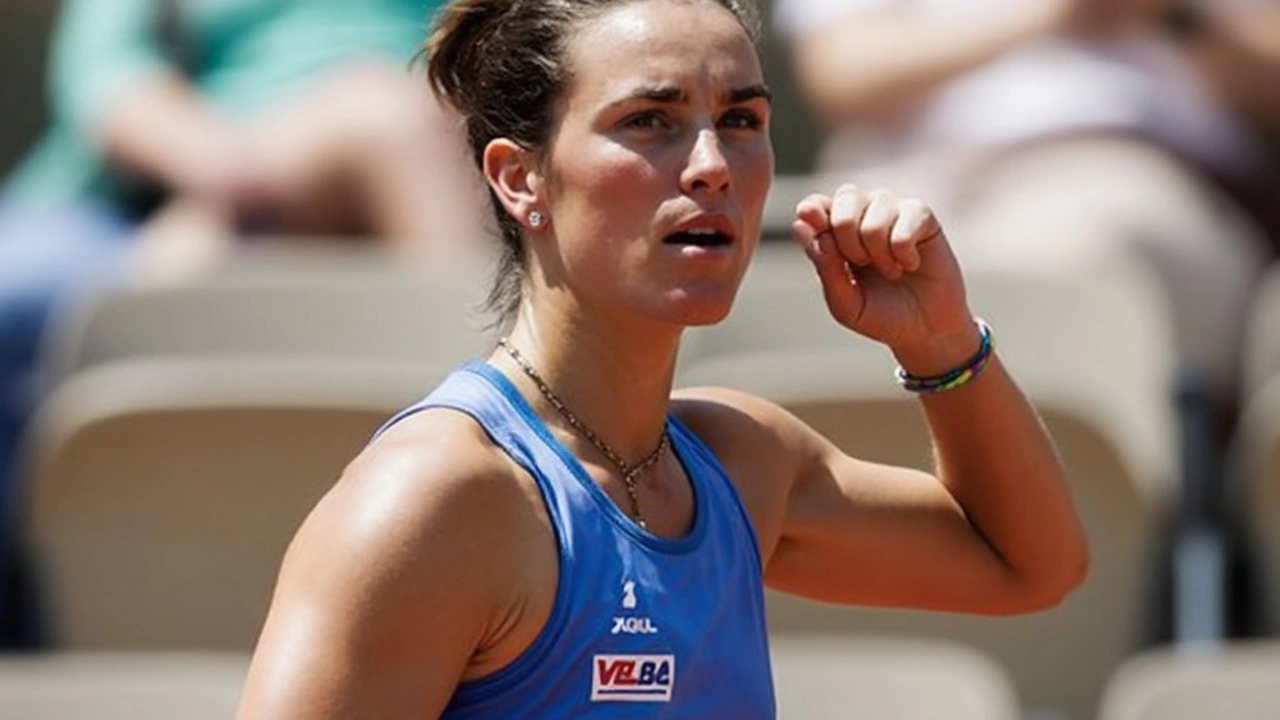The Biggest Surprise of Roland-Garros 2025 Sweeps Paris
Imagine walking into Philippe-Chatrier Court expecting a routine win for a world top-three player, only to watch everyone’s predictions thrown out the window. That’s exactly what happened when Lois Boisson, barely known outside French tennis circles, sent Jessica Pegula — the third seed and a heavy favorite — packing in the fourth round of Roland-Garros 2025.
Boisson, a 22-year-old wild card sitting at No. 361 in the world, didn’t just pull off a lucky break or scrape through a win. She battled back from a set down, outlasted Pegula in back-to-back tight sets, and delivered a display of nerves and courage that had the crowd in awe. Boisson’s 3-6, 6-4, 6-4 victory is the kind of tennis moment that gets people believing in fairy tales again. The Parisien underdog, carrying no big sponsorship deals or expectations a year ago, now finds herself one match away from the Grand Slam semifinals.
The twist in Boisson’s story? Just over twelve months ago, she was recovering from a torn ACL that knocked her out of the 2024 French Open. The road back wasn’t pretty: endless rehab, doubts about her future, and the struggle to trust her own body again. Even before the Pegula match, Boisson told reporters she played every tournament grateful just to move freely on court. Her run through the draw, culminating in this gigantic upset, is more than just a scoreline — it’s the definition of resilience.
A Match Full of Heart and Unpredictable Tennis
The duel itself had everything: Pegula taking early control, Boisson scrambling and lunging for every ball, and the tension rising as the match wore on. After losing the first set 3-6, most expected Boisson to run out of steam — but the local crowd kept her going, chanting and clapping, believing with every shot. The Frenchwoman’s intensity rose, especially as she started finding angles and passing shots that left Pegula shaking her head.
The turning point came late in the second set. Pegula, known for her steadiness and ability to grind down opponents, began spraying unforced errors, while Boisson’s defense frustrated her at every turn. At 5-4, Boisson broke through, clinching the set with a forehand winner that had half the stadium on their feet.
Momentum swung hard in the decider. Boisson’s movement, once feared lost to that knee injury, seemed almost better than ever. She chased down impossible balls, slid with controlled aggression, and kept her shots deep. The final set teetered on a knife’s edge until a double fault from Pegula handed Boisson match point. The wild card didn’t flinch, sealing her place in the quarter-final, her disbelief visible as she dropped her racquet and covered her face.
Afterwards, Boisson was still soaking it all in. "I will not believe that if you tell me that two weeks ago," she said. But behind the wide-eyed wonder, there was quiet confidence: You can’t get this far at Roland-Garros, against a top-three opponent, by accident. She pointed to her team, the physiotherapists, and the noisy Parisian fans as the reasons she believed again. As she walked off the court, the cheers kept coming — a celebration not just of a win, but of a journey back from injury and the unpredictable magic that makes tennis impossible to script.
